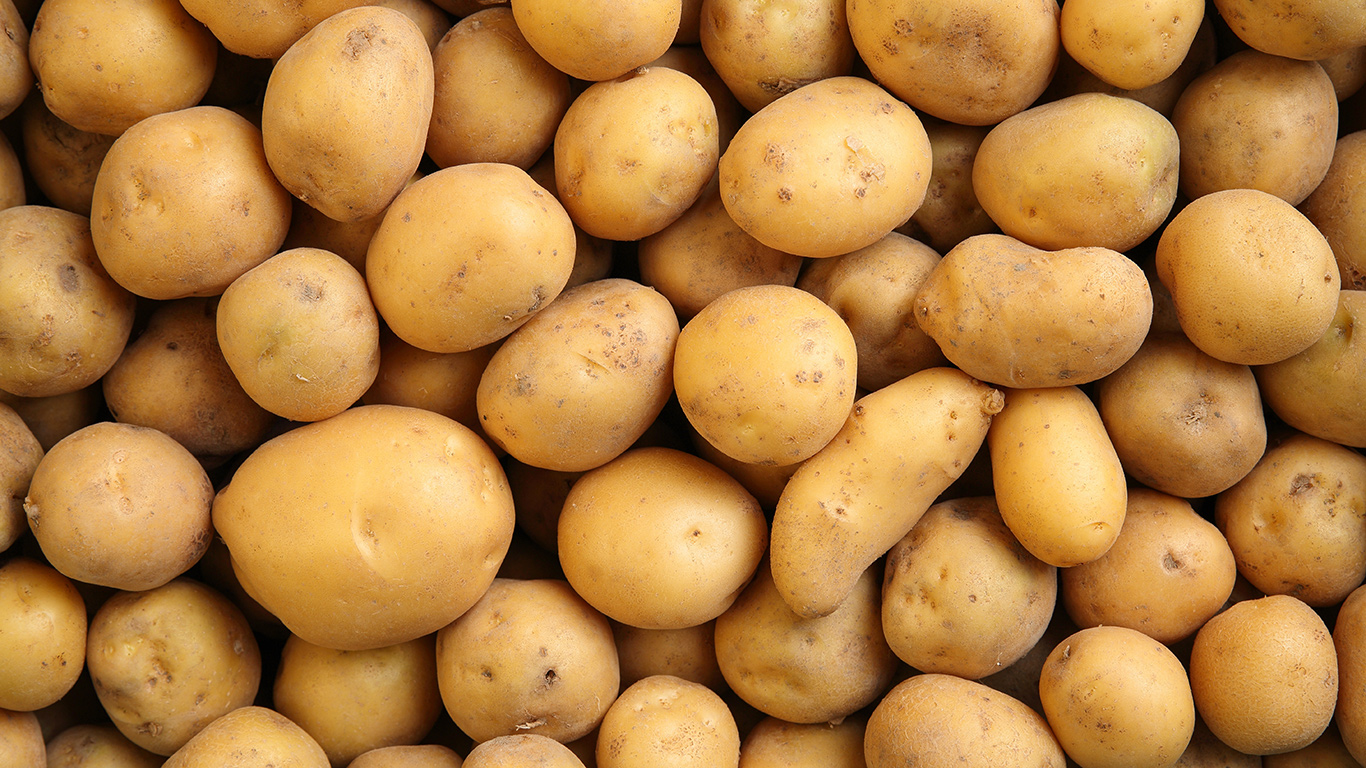Federal scientists in the Maritimes are trying to develop a new species of potato better adapted to conditions caused by climate change.
Bourlaye Fofana, a researcher with Agriculture and Agri-Food Canada, led a team in Charlottetown, Prince Edward Island, that examined wild potato varieties native to the Andes in South America that could contribute to the development of a more drought-tolerant potato for North American markets.
There are more than 5,000 varieties of potatoes worldwide, says the Federal Ministry of Agriculture, and this high number has reduced the genetic differences between many of them, making some potatoes less resistant to disease and climate change.
We see many problems because the genetic diversity among these commercially grown varieties is quite small. With climate change and heat waves, this lack of genetic diversity could be a big problem in the future.
Most commercial potato varieties are of tetraploid origin: they have four copies of each chromosome in their DNA, with two copies inherited from each plant parent. Mr. Fofana worked with wild potato varieties native to Peru that have two copies of each chromosome and are known as diploids. He explained that the chromosomal difference makes the wild potato variety easier to work with in the laboratory. “It’s easier to find (genetic) markers; so if you find your marker in diploids, it can be used in tetraploids,” he explained.
The scientist said wild potatoes are smaller than traditional commercial varieties, but similar to them. “I have been working on diploids since 2014 and we are obtaining clones that are viable in terms of yield, size and quality of the tubers,” he said. We know, for example, that the starch content is quite good and the processing quality is quite good. »
Encouraging results
Bourlaye Fofana and his team, along with researchers from Kentville, Nova Scotia, and a researcher from Chile, evaluated 384 diploid potato clones for their drought tolerance and plant maturation. Of these, 127 were found to be late bloomers and tolerant to drought conditions, while nine were early to moderate late bloomers and drought tolerant.
Mr Fofana said he was “very excited” about the potential of the research findings.
Because in our collection we have diploid potatoes which ripen early and that means you can plant them and they can give you the expected yield as soon as possible. We also have clones that can grow over a longer period of time.
The research carried out by the researcher and his team is considered an important first scientific step. About 50 of the most promising clones are returned to the ministry’s breeding program in Fredericton for further study.
At the Fredericton plant, potato clones will be evaluated based on their size and shape, as well as their yield potential and cooking and processing characteristics. After that, they could be marketed as potato varieties, or their seeds, plants or plant parts could be used in potato breeding.
Mr Fofana said building crop resilience becomes increasingly important as conditions become drier and hotter, even in fertile regions. “With climate change, the frequency of droughts is increasing, particularly where water resources are limited, he stipulated. We must therefore be proactive and see how to adapt our crops and our cultivation system to respond to these new challenges. »

